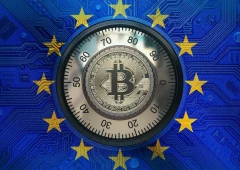Meme Coin Scam Drains $10M in Minutes, Shocking Investors
02.02.2025 10:00 1 min. read Alexander Stefanov
Meme coins continue to attract speculators, but their explosive popularity has also fueled a wave of scams.
A recent case involving an alleged fraud in India has left investors reeling after the creator of GANG token reportedly drained millions in mere minutes.
An anonymous crypto analyst, Fawi, exposed the suspected scheme, linking it to a pseudonymous investor, MrPunkDotEth. The token was promoted as a cultural movement, but skepticism arose when its creator retained an overwhelming majority of the supply. Initially claiming to control 90%, further investigation suggested he held nearly 95%.
As trading kicked off, he rapidly offloaded holdings, securing $1.3 million in the first two minutes alone. Using multiple wallets, he allegedly extracted a total of $10 million before converting the funds through Binance.
While estimates on the final haul vary, experts believe the scam netted at least $4 million, leaving investors with worthless tokens. GANG’s price plummeted 99.5%, triggering widespread outrage as the community demanded legal action and called on exchanges to freeze the stolen funds.
Meanwhile, a separate controversy saw the abrupt collapse of the CHARLES meme coin. Its creator had sent $100 million worth of tokens to Cardano founder Charles Hoskinson, hoping for an endorsement. Instead, Hoskinson burned the entire supply, instantly erasing any speculative value tied to his name.
-
1
Shaquille O’Neal Agrees to $1.8M Settlement Over FTX Endorsement Lawsuit
15.06.2025 21:00 1 min. read -
2
Whale Accumulates Curve Tokens Amid Market Lull
16.06.2025 11:00 1 min. read -
3
Iran Limits Crypto Trading Hours After Politically Charged Hack on Nobitex
20.06.2025 11:00 1 min. read -
4
CoinMarketCap Potentially Compromised in Ongoing Front-End Attack
21.06.2025 10:00 1 min. read -
5
Crypto Investigator Links New Altcoin Project to $30M Scam
17.06.2025 18:00 1 min. read
Pennsylvania Man Sentenced to 8 Years for $40M Crypto Ponzi Scheme
The U.S. Department of Justice has sentenced Dwayne Golden, 57, of Pennsylvania to 97 months in prison for orchestrating a fraudulent crypto investment scheme that stole over $40 million from investors.
Crypto Theft Surges to $2.1B in 2025: State Actors Lead Historic Wave of Attacks
The first half of 2025 has become the most damaging six-month period in crypto history, with over $2.1 billion stolen across 75+ separate incidents, according to new data.
Crypto Users Targeted as Cointelegraph and CoinMarketCap Fall to Front-End Hacks
A new breed of cyber-attack is sweeping through crypto media, exploiting site pop-ups and wallet-connect prompts instead of smart-contract bugs.
CoinMarketCap Potentially Compromised in Ongoing Front-End Attack
CoinMarketCap, one of the most widely used crypto data tracking platforms, is reportedly facing a front-end security breach, with multiple users encountering a suspicious prompt to verify their wallets.
-
1
Shaquille O’Neal Agrees to $1.8M Settlement Over FTX Endorsement Lawsuit
15.06.2025 21:00 1 min. read -
2
Whale Accumulates Curve Tokens Amid Market Lull
16.06.2025 11:00 1 min. read -
3
Iran Limits Crypto Trading Hours After Politically Charged Hack on Nobitex
20.06.2025 11:00 1 min. read -
4
CoinMarketCap Potentially Compromised in Ongoing Front-End Attack
21.06.2025 10:00 1 min. read -
5
Crypto Investigator Links New Altcoin Project to $30M Scam
17.06.2025 18:00 1 min. read


